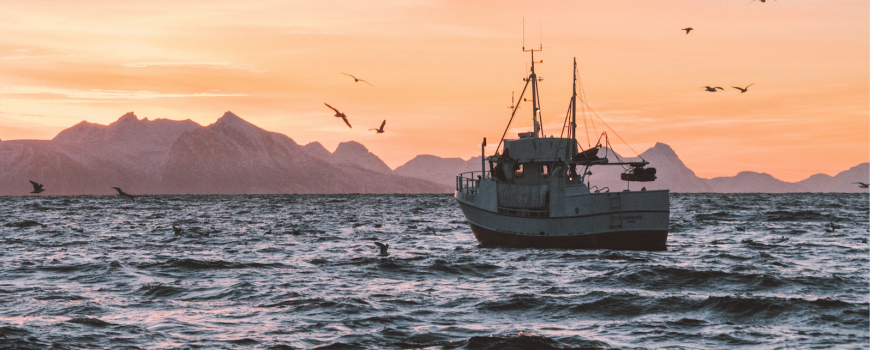About 39% of the ocean is covered by Exclusive Economic Zones (EEZ), which give nation-level property rights to marine resources, such as fish, oil, and minerals. More than 95% of global marine fish catch occurs inside EEZs, and countries have the exclusive right to manage and use natural resources within their EEZ. Since assigning property rights to natural resources has been shown to improve both economic and ecological outcomes, EEZs could be an important tool for improving the sustainability and profitability of global fisheries.
However, EEZs cover large swaths of remote ocean and patrolling their boundaries to prevent unauthorized fishing is very expensive. Without enforcement, unauthorized foreign fishing vessels might not respect other countries’ EEZs, which would undermine the incentive for countries to sustainably manage the fish stocks inside their EEZs.
In a study published today in Nature Sustainability, Gabriel Englander, a PhD Candidate at UC Berkeley and a NOAA Fisheries-Sea Grant fellow, tested whether unauthorized foreign vessels are deterred from fishing inside EEZs. Analyzing global fishing activity near the boundary between each nation’s EEZ and the high seas—which no nation has claim to—Englander’s results are the first to demonstrate that assigning property rights across countries leads to the protection of fisheries from unauthorized fishing.
Using data from Global Fishing Watch, Sea Around Us, and the European Union, Englander found that unauthorized foreign fishing is 81% lower just inside EEZs compared to just outside them. Vulnerable species that occur in these EEZ-sea regions—such as Argentine Angelshark, Greenland Shark, and Atlantic Halibut—are being protected by the existence of EEZs. These results suggest that property rights institutions can enable effective governance of global marine resource use, particularly for resources that are valuable enough to justify enforcement costs.
However, he also found that just 10 regions accounted for 97% percent of the global deterrence effect—the EEZ regions belonging to Argentina, Iceland, Norway, the Faroe Islands, the Falkland Islands, Canada, the Marshall Islands, and Peru. “Because enforcing EEZ boundaries is so expensive, it is only worthwhile for countries with the most valuable fisheries near their boundaries,” said Englander.
Englander says that the results of the study could have implications for the design of other conservation and management institutions such as recently proposed marine protected areas in international waters.
A version of this story was originally published on the UC Berkeley website.

